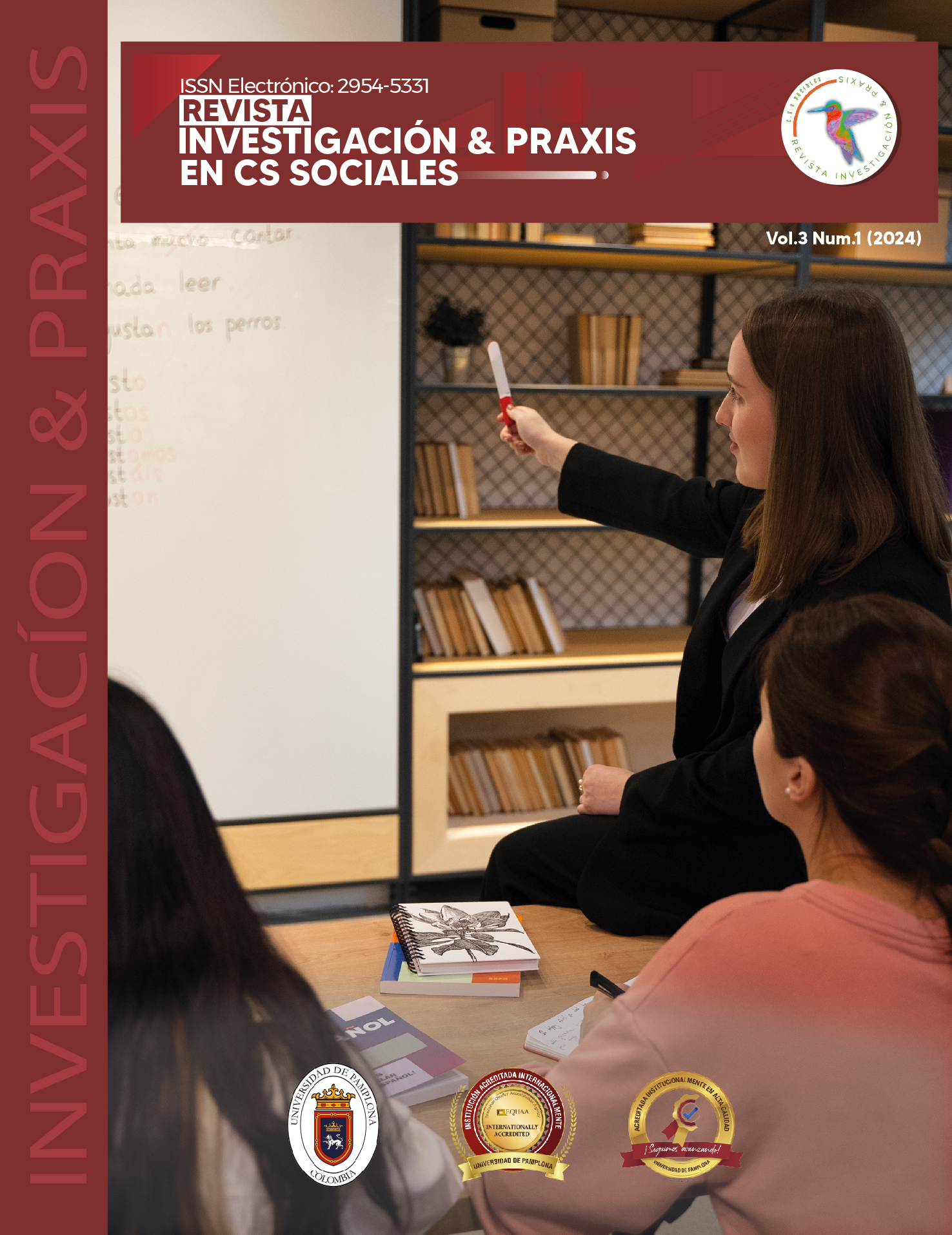Competencias del siglo xxi: desarrollo de habilidades blandas (comunicación, colaboración, pensamiento crítico, creatividad)
DOI:
https://doi.org/10.24054/ripcs.v3i1.3040Palabras clave:
habilidades blandas, educación superior, desarrollo curricular, rendimiento académico, Universidad de PamplonaResumen
Este artículo investiga el desarrollo de habilidades blandas esenciales para el éxito en el entorno laboral contemporáneo, como la comunicación, la colaboración, el pensamiento crítico y la creatividad. Nuestro objetivo es identificar métodos efectivos para cultivar estas competencias en estudiantes de los primeros semestres del área de educación en la Universidad de Pamplona y evaluar su impacto en el rendimiento académico.
En la era actual, las habilidades blandas se han convertido en una demanda crítica en el ámbito profesional, no obstante, su integración en el currículo universitario sigue siendo un desafío significativo, este estudio aborda este vacío investigativo, centrando el foco en cómo estas habilidades pueden ser desarrolladas de manera efectiva en los contextos educativos.
Se empleó una metodología mixta que incluye una revisión exhaustiva de la literatura académica y análisis de estudios de caso de en los primeros semestres del programa en educación especial y ciencias sociales de la Universidad de Pamplona. Este enfoque permitió identificar programas exitosos de desarrollo de habilidades blandas y su implementación práctica en contextos educativos similares.
Los resultados indican que la integración estructurada de habilidades blandas en el currículo no solo mejora el rendimiento académico de los estudiantes universitarios, sino que también los prepara de manera más efectiva para enfrentar los desafíos del entorno laboral moderno, se destacan varios programas y estrategias que han mostrado un impacto positivo significativo en la preparación profesional de los estudiantes.
Referencias
Binkley, M., Erstad, O., Herman, J., Raizen, S., Ripley, M., Miller-Ricci, M., & Rumble, M. (2012). Defining twenty-first-century skills. En Assessment and Teaching of 21st Century Skills (pp. 17-66). Springer. https://doi.org/10.1007/978-94-007-2324-5_2
Binkley, M., Erstad, O., Herman, J., Raizen, S., Ripley, M., Miller-Ricci, M., & Rumble, M. (2012). Defining 21st century skills. Springer.
Deakin Crick, R., et al. (2015). Learning to Learn: A Model for Understanding the Process. Journal of Educational Psychology.
Dede, C. (2010). Comparing frameworks for 21st century skills. Harvard Graduate School of Education.
Edmondson, A. C., & Lei, Z. (2014). Psychological Safety: The History, Renaissance, and Future of an Interpersonal Construct. Annual Review of Organizational Psychology and Organizational Behavior.
Facione, P. (2011). Critical Thinking: What It Is and Why It Counts. Insight Assessment.
Halpern, D. F. (2014). Thought and Knowledge: An Introduction to Critical Thinking. Psychology Press.
Johnson, D. W., & Johnson, R. (1999). Making Cooperative Learning Work. Theory Into Practice.
Partnership for 21st Century Skills. (2009). Framework for 21st century learning. P21.
Robinson, K. (2011). Out of Our Minds: Learning to be Creative. Capstone.
Trilling, B., & Fadel, C. (2009). 21st Century Skills: Learning for Life in Our Times. Jossey-Bass. https://doi.org/10.1002/9781118269515
Trilling, B., & Fadel, C. (2009). 21st century skills: Learning for life in our times. Jossey-Bass.
Wagner, T. (2008). The Global Achievement Gap: Why Even Our Best Schools Don’t Teach the New Survival Skills Our Children Need—and What We Can Do About It. Basic Books. https://doi.org/10.1177/0013124508325673
Wagner, T. (2008). The global achievement gap: Why even our best schools don’t teach the new survival skills our children need—and what we can do about it. Basic Books.
Publicado
Número
Sección
Licencia
Derechos de autor 2024 Revista Investigación & praxis en CS Sociales

Esta obra está bajo una licencia internacional Creative Commons Atribución 4.0.










